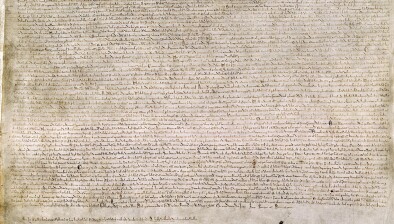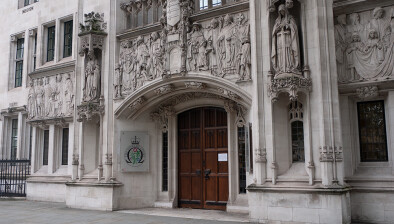Court of Appeal: Man convicted of raping his step-daughter loses appeal
A man who was sentenced to twelve years’ imprisonment for raping and sexually abusing his step-daughter over a period of seven years has lost an appeal against his conviction.

About this case:
- Citation:[2019] IECA 121
- Judgment:
- Court:Court of Appeal
- Judge:Mr Justice Patrick J. McCarthy
Dismissing all five grounds raised by the man, Mr Justice Patrick McCarthy found, inter alia, that the trial judge had not erred in redacting parts of the man’s memorandum of interview or in allowing the introduction of evidence from the victim’s friend.
Background
In the Central Criminal Court in January 2017, BD was convicted of 17 counts of sexual assault contrary to section 2 of the Criminal Law (Rape) (Amendment) Act 1990, and 16 counts of rape contrary to section 4 of the Criminal Law (Rape) (Amendment) Act 1990.
The convictions were all in relation to one victim – his step-daughter – who he had abused since 2004 when she was approximately 12 years old. BD’s victim made her initiating complaint to the gardaí in September 2011, having been afraid of “ripping the family apart”, trying to believe that the abuse would eventually stop but realising that it would not stop until she told someone.
BD was given sentences of 12 years on each of the rape offences, and lesser terms on each of the sexual assaults. All sentences run concurrently with the suspension of the final two years.
BD appealed on the grounds that the trial judge erred in fact and/or in law:
- In the particular circumstances of this case in removing certain questions and answers from BD’s memoranda of interview with An Garda Síochána and which were to be seen at pages 86 and 91 of the book of evidence;
- In ruling that the cross examination of the complainant and the introduction of certain Facebook pages gave rise to the issue of recent fabrication;
- In following on from the issue raised at (ii) above, allowing the prosecution to introduce the evidence of the victim’s friend, AW, for the purpose of rebutting recent fabrication;
- In allowing the prosecution to introduce the evidence of AW as evidence of recent complaint;
- Having initially ruled that the evidence of the victim’s friends, KD and AW, was inadmissible as evidence of recent complaint, that in then directing the jury as to why they were entitled to hear the evidence of AW, the judge’s direction may have led the jury to give special weight or significance to the evidence of AW.
Redacted memorandum of interview
On the first ground, Mr Justice McCarthy explained that the memorandum of evidence of interview included statements from BD regarding alleged abuse of the victim’s mother and other family members – and the prosecution sought the redaction on the basis that the references related to third parties added nothing to the case.
Mr Justice McCarthy said that the court was not persuaded that the material in issue was of any real relevance. He said that the material “involved a discussion of matters of the utmost intimacy involving individuals who were given no opportunity to comment on or respond to what was being said about them”, and that in those circumstances, the decision to edit was a proper one.
Even if the material ought properly to have been put before the court in its original un-redacted form, Mr Justice McCarthy said the court was quite satisfied that the failure to do so did not impact on the overall fairness of the trial and dismissed this ground of appeal.
Fabrication
The background to the second ground was the fact that when the re-examination commenced, the prosecution sought to introduce evidence designed to rebut an allegation of recent fabrication which they submitted the defence had advanced during the course of cross-examination. The prosecution submitted that the line of questions that were put to the victim suggested that she recently fabricated these events arising from differences or hostility between her then-boyfriend and BD in late 2011, but the defence complained that at no stage was it put to the victim that she fabricated the allegations as a result of the differences between them.
Rejecting this ground of appeal, Mr Justice McCarthy said that there could not have been any doubt that the defence case was that the victim was fabricating on a grand scale, nor could there be any doubt that the case was that the trigger for this was the worsening relationship between the victim’s then-boyfriend and BD.
Mr Justice McCarthy also rejected the third ground, stating that the question of permitting evidence to be adduced to counter the suggestion of recent fabrication was an issue that was dealt with by the trial judge with considerable care, that the trial judge was particularly best placed to make that judgment, and the decision to admit AW’s evidence was justified.
Recent complaint doctrine
It was argued on BD’s behalf that, inter alia, the evidence of AW did not possess the necessary elements to come within the ambit of the recent complaint doctrine – particularly lacking the characteristic of voluntariness in that anything the victim said to AW was as a result of questioning and prompting.
Dismissing this ground of appeal, Mr Justice McCarthy said that the trial judge was entitled to view AW’s evidence as admissible as evidence of recent complaint from the outset, that the complaints were being made while the abuse was going on, there was no hint of a suggestion of information being fed to the victim by her friend, and that the exchanges were voluntary and age appropriate interactions between the two friends.
Special weight or significance
After outlining the trial judge’s charge to the jury, Mr Justice McCarthy said “there was nothing inappropriate about the judge pointing out that, in general, hearsay evidence is not admissible, but that there are exceptions in criminal cases and to provide a degree of historical context. What was important was that the judge made clear that the evidence was being admitted as going to consistency only and was not proof that the crime had happened. This is a perfectly normal charge in respect of evidence of this kind. Regardless of whether the evidence was admitted in the context of recent fabrication or recent complaint, the limited purpose for which the evidence was to be considered by the jury was the same”.
- by Seosamh Gráinséir for Irish Legal News









